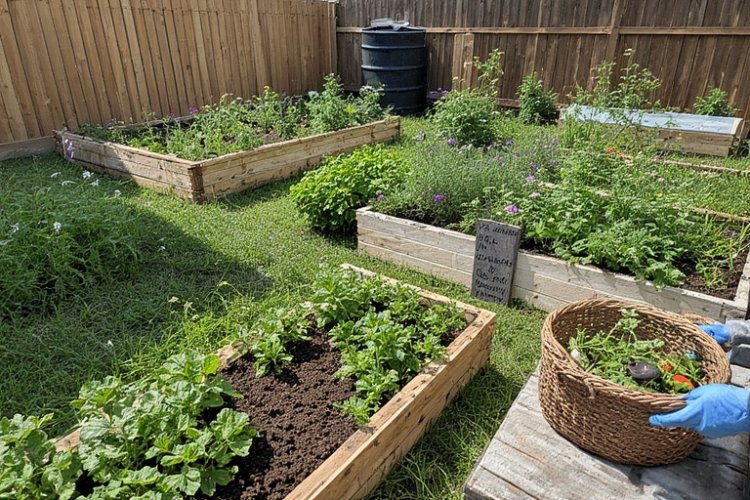Sustainable Gardening Practices: Tips for Growing with the Environment in Mind
Discover practical sustainable gardening practices to grow plants while protecting the environment. Learn eco-friendly tips for organic gardening and reducing your ecological footprint.

Gardening is a rewarding activity that connects us with nature, but it can also have an impact on the environment. By adopting sustainable gardening practices, you can grow healthy plants while minimizing your ecological footprint. Whether you're a seasoned gardener or a beginner, these tips will help you create a thriving, eco-friendly garden.
What is Sustainable Gardening?
Sustainable gardening focuses on practices that are environmentally friendly, conserve resources, and promote biodiversity. It involves reducing waste, using organic methods, and working in harmony with nature to create a healthy ecosystem.
Key Sustainable Gardening Practices
1. Use Organic Soil and Compost
Healthy soil is the foundation of a sustainable garden. Avoid synthetic fertilizers and pesticides, which can harm beneficial insects and pollute water sources. Instead, enrich your soil with organic compost made from kitchen scraps, yard waste, and other natural materials. Composting not only reduces waste but also improves soil structure and fertility.
2. Conserve Water
Water is a precious resource, and conserving it is essential for sustainable gardening. Use drip irrigation or soaker hoses to deliver water directly to plant roots, reducing evaporation. Collect rainwater in barrels to use during dry spells. Mulching around plants also helps retain moisture and suppress weeds.
3. Choose Native Plants
Native plants are adapted to your local climate and soil conditions, making them easier to grow and maintain. They also provide habitat and food for local wildlife, promoting biodiversity. Research which plants are native to your area and incorporate them into your garden.
4. Practice Crop Rotation
Crop rotation is a time-tested method to maintain soil health and prevent pest and disease buildup. By rotating crops each season, you can balance nutrient levels in the soil and reduce the need for chemical interventions.
5. Attract Beneficial Insects
Encourage pollinators and natural pest predators by planting flowers like marigolds, sunflowers, and lavender. Avoid using harmful pesticides that can kill beneficial insects like bees and ladybugs, which play a crucial role in a healthy garden ecosystem.
6. Reduce, Reuse, Recycle
Incorporate recycling into your gardening practices. Use recycled materials for planters, trellises, and garden borders. Repurpose old containers or pallets to create unique garden features while reducing waste.
Benefits of Sustainable Gardening
By adopting these practices, you can enjoy a beautiful garden while contributing to a healthier planet. Sustainable gardening reduces pollution, conserves resources, and supports local ecosystems. It’s a small but impactful way to make a difference.
Start implementing these eco-friendly tips today and watch your garden flourish in harmony with nature. Happy gardening!
What's Your Reaction?
















